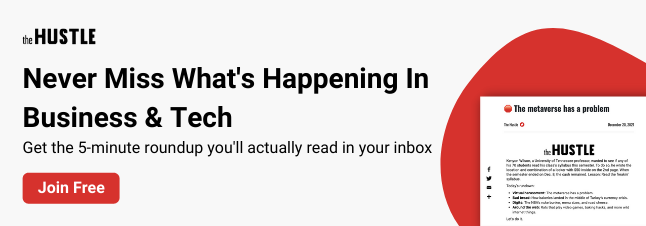Transitioning back into civilian life can be difficult, and adjusting to work can be even harder.

Many veterans find the typical office experience to be a challenge, and an increasing number of veterans are choosing to open their own businesses. In 2018, the most recent year for which data was available, almost 2m businesses were owned by veterans.
If you’ve considered opening a business yourself, learn about what veteran business loans are available and if there are any government programs that can help you with the process.
Veteran business loan programs
Applying for a veteran business loan is a bit different from the traditional business loan process. Also, there are few veteran-only loans. However, you can take advantage of lower rates and other programs aimed at helping veteran small-business owners.
The programs you qualify for will depend on your level of service and injury status. In general, you’ll find that programs specifically designed for veteran-owned businesses offer discounts and lower interest rates. However, the application process can be longer and more complicated.
US Small Business Administration (SBA) programs
The SBA offers loan programs for startups and established businesses, as well as training and contracting programs. It partners with other lenders and financial institutions and often guarantees a percentage of these loans to encourage banks to take them on.
Military Reservist Economic Injury Disaster Loan (MREIDL)
The MREIDL loan program helps businesses that have an employee called to active duty. The loan program is designed to encourage businesses to hire active military members. It provides up to $2m to help cover working capital when a service member is mobilized.
Any small business can apply for this loan, even those not run by veterans. However, you must prove that seeking funding from non-governmental sources would cause your business financial hardship. In other words, you don’t have enough business credit available from a private lender.
If your business has many employees, you may qualify for an even larger amount. Plus, you have up to 30 years to repay.
However, this program requires collateral for loans greater than $50k.
Best SBA program for: Businesses who hire active service members
SBA 7(a) loans
Veterans can look to SBA 7(a) loans for a competitive financing option. You can use this loan to cover many common business expenses, including real estate and equipment.
You can apply for up to $5m in financing, and the SBA will guarantee up to 85% of the loan. However, the approval period can take up to 10 business days.
Best SBA program for: Businesses who need larger amounts of funding
SBA Express loan
If you need funding sooner, the SBA Express loan offers financing up to $500k and may approve your loan in as little as 36 hours. This program isn’t only for veterans. However, it does eliminate fees for qualifying businesses who are owned by a veteran, military spouse, or active service member.
One downside of this program is the SBA will only guarantee up to 50% of the loan.
Best SBA program for: Businesses who need funds fast
Training programs
In addition to loans, the SBA offers several training programs to help entrepreneurs gain the skills and knowledge to start or grow their own businesses:
- Boots to Business
- Service-Disabled Veteran Entrepreneurship Training Program
- Veteran Federal Procurement Entrepreneurship Training Program
- Women Veteran Entrepreneurship Training Program
These programs are designed not only for vets but also for military spouses and active-duty service members.
Best SBA program for: Entrepreneurs who want to learn more about business ownership
Service-Disabled Veteran-Owned Small Business (SDVOSB) program
The SDVOSB program aims to help service-disabled veterans get government contracts for their businesses. The goal is to award at least 3% of all federal contracting funds to veteran entrepreneurs who meet the requirements.
Veteran Jeremy Lowell, managing director for staff augmentation firm The KYO Group, has used this program to subcontract with the government and work with the Army’s Transition Assistance Program.
However, Lowell notes that the application process was a bit cumbersome and required a lot of paperwork.
Best SBA program for: Businesses targeting federal contracts
Other funding options
Financial institutions like Navy Federal Credit Union and United Services Automobile Association also provide loans to their members at rates that are often better than many private banks. To become a member, you must be an active-duty service member, veteran, or military spouse — or have a family member serving in the military.
Some private banks and online lenders also offer military service members special financing. For example, Bank of America offers discounts for veterans applying for business loans. The SBA often guarantees those loans, however, so working directly with the SBA is a good way to find out all of your options.
Also, as a reminder, the Department of Veterans Affairs (VA) does not provide loan options for military veterans.
How to get a veteran small-business loan
The SBA has a few basic requirements for loan applicants. In general, you’ll find that all of the programs require you to:
- Operate for profit
- Be at least 51% veteran owned
- Do business (and be physically located) in the US
- Be creditworthy (most programs have a minimum credit score)
- Be unable to find funding from other sources
- Have a good business plan
- Meet the SBA’s general requirements
Depending on the bank, some types of businesses, like casinos, may not be covered.
What you can use veteran loan funds for
You’ll find that each program has different requirements depending on the loan amount and whether it’s secured or unsecured. You’ll often need to apply for a specific type of loan depending on what you need it to cover, too.
For example, MREIDL funding is supposed to be used to help cover payroll expenses. However, you can’t use it to make up for lost sales or expand your business.
You can use many of these loans for:
- Cash flow
- Equipment purchases
- Hiring additional workers
- Real estate
- Additional business needs
Research the individual programs that interest you to find the best fit for your business goals.
Getting help with the veteran business loan process
Veteran business loans can be a lifesaver for many entrepreneurs. But while the program terms are competitive, they can be difficult to qualify for and involve a lot of bureaucratic hoops. Here are some tips to help make the process easier.
Seek out a mentor
Working with someone who has actually gone through the process can be a great way to learn from experience. A study conducted by the Institute for Veterans and Military Families (IVMF) found 41% of veteran business owners said a mentor was their most helpful resource.
A business mentor, especially a fellow veteran entrepreneur, can help you navigate these programs more easily. You can contact your local Veteran Business Outreach Center (VBOC) for help finding a mentor (more on that below).
Get things organized
Organizing your documents and writing out your business plan can help you make your case to lenders — even if you’ve been denied by a bank already, have bad credit, or don’t quite meet the eligibility requirements.
If you clearly spell out your business needs and current cash flow, work out your repayment plan, and explain what you’ll use the funds for, you’ll come across as a more trustworthy borrower. And having a concrete business plan will make it easier to convince others to lend you money.
Contact your local VBOC
A good place to start is by contacting your local VBOC. This SBA program helps veterans learn how to start a business and connect with mentors. It also offers training.
The SBA’s veteran financing options are operated under the Office of Veterans Business Development (OVBD), which also helps run the VBOCs. You’ll be able to learn more about running a startup business, attend workshops, and explore funding options. Even better, the offices are located in areas with lots of veterans.
Veteran Michael Gillihan, partner and COO at website development firm CauseLabs, found the SBA to be the most helpful organization while he was looking for funding.
“Some banks said we were not asking for a large enough loan,” he says. “Some wanted more collateral. Due diligence was challenging. The whole process was foreign, and informational resources weren’t easily found.”
While the process can seem overwhelming at times, organizations dedicated to helping veteran-owned small businesses can help you get the funding your small business needs to get off the ground or expand.



